In the competitive hospitality industry, managing expenses is crucial for hotel owners and managers. One significant cost that can impact a hotel’s bottom line is insurance premiums. By implementing effective strategies, hotels can minimize their insurance costs while maintaining adequate coverage.
This comprehensive guide delves into the intricacies of hotel insurance, providing valuable insights and practical tips to help hoteliers navigate the complexities of insurance policies and keep their premiums in check.
Understanding Hotel Insurance Coverage

Hotels face unique risks due to their operations and services, making it essential to have a comprehensive insurance plan. Various types of hotel insurance coverage cater to different aspects of a hotel’s operation.
Understanding these coverages and their significance helps hotels tailor their insurance policies to effectively manage risks and protect their assets.
Types of Hotel Insurance Coverage
- Property Insurance: Protects the physical assets of the hotel, including the building, furniture, equipment, and inventory.
- Liability Insurance: Covers the hotel’s legal liability for injuries or damages caused to guests, employees, or third parties on the hotel premises.
- Business Interruption Insurance: Provides financial coverage for lost income and expenses if the hotel’s operations are disrupted due to covered events like fire, natural disasters, or accidents.
- Workers’ Compensation Insurance: Covers medical expenses, lost wages, and disability benefits for employees injured while performing their job duties.
- Liquor Liability Insurance: Protects the hotel against legal claims arising from injuries or damages caused by intoxicated guests due to alcohol served at the hotel.
Significance of Liability Insurance for Hotels
Liability insurance is crucial for hotels as it provides protection against legal claims and financial losses resulting from injuries or damages caused to guests, employees, or third parties due to the hotel’s negligence or failure to maintain a safe environment.
Without adequate liability coverage, hotels could face significant financial burdens, including legal fees, settlements, and judgments, which can potentially jeopardize the hotel’s operations and reputation.
Importance of Property Insurance for Protecting Hotel Assets
Property insurance plays a vital role in safeguarding the physical assets of the hotel. In the event of a covered loss, such as fire, theft, or natural disasters, property insurance provides financial compensation to repair or replace damaged or destroyed property.
This coverage is essential for hotels to protect their valuable assets and ensure business continuity, as replacing or repairing damaged property without insurance can be financially devastating.
Risk Management for
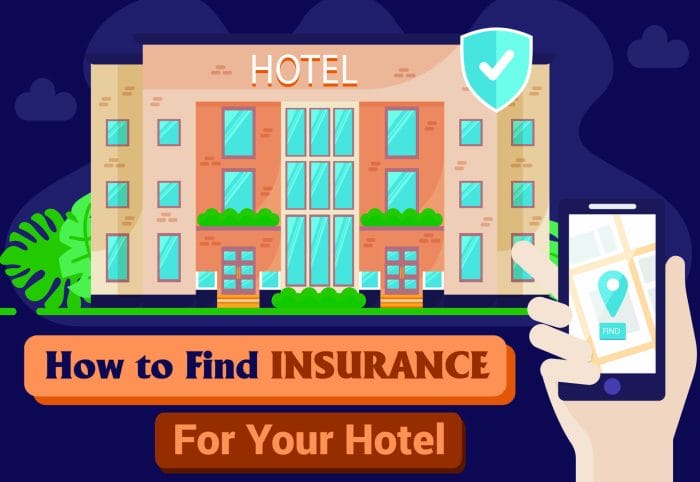
paragraphRisk management in the hotel industry involves identifying, assessing, and mitigating potential risks that can lead to financial losses, legal liability, or reputational damage. A comprehensive risk management plan helps hoteliers proactively address these risks and minimize their impact on the business.
Effective Methods for Identifying and Assessing Hotel Risk
Effective risk management begins with identifying and assessing potential risks that can affect your hotel. This can be done through a variety of methods, including:
- Conducting a risk assessment: This involves identifying and evaluating potential risks based on their likelihood and impact on your hotel. This can be done through a variety of methods, such as brainstorming sessions with hotel staff, reviewing historical data, and conducting site inspections.
- Using risk management software: There are a variety of software tools available that can help you identify and assess hotel risks. These tools can help you track and manage risks, and identify trends and patterns that can help you better understand and mitigate potential risks.
- Consulting with a risk management expert: A risk management expert can help you identify and assess potential risks that you may have overlooked. They can also provide guidance on how to mitigate these risks and develop a comprehensive risk management plan.
Tips for a Comprehensive Risk Management Plan
A comprehensive risk management plan should include the following elements:
- Risk identification and assessment: This involves identifying and evaluating potential risks based on their likelihood and impact on your hotel.
- Risk mitigation strategies: This involves developing and implementing strategies to reduce the likelihood or impact of potential risks.
- Emergency response plan: This involves developing a plan for responding to potential emergencies, such as natural disasters, fires, or security breaches.
- Regular review and update: Your risk management plan should be reviewed and updated regularly to ensure that it remains relevant and effective.
The Role of Staff Training in Mitigating Hotel Insurance Premiums
Staff training is an important aspect of risk management in the hotel industry. By providing your staff with the knowledge and skills they need to identify and mitigate potential risks, you can reduce the likelihood of incidents that can lead to financial losses, legal liability, or reputational damage.
Here are some tips for providing effective staff training:
- Conduct regular training sessions: Provide your staff with regular training on risk management topics, such as fire safety, security, and guest safety.
- Use a variety of training methods: Use a variety of training methods, such as online courses, in-person training, and simulations, to keep your staff engaged and ensure that they retain the information they learn.
- Test your staff’s knowledge: Regularly test your staff’s knowledge of risk management topics to ensure that they are retaining the information they learn.
- Provide incentives for good performance: Provide incentives for your staff to perform well in risk management areas, such as bonuses or promotions.
Implementing Safety and Security Measures
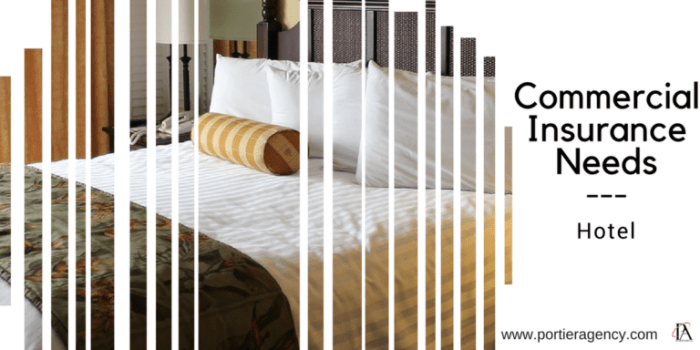
Ensuring the safety and security of guests and staff is paramount in the hospitality industry. Effective implementation of safety and security measures not only enhances the guest experience but also minimizes the risk of accidents, injuries, and property damage, leading to potential savings on insurance premiums.
Design a Checklist for Conducting Regular Safety Inspections in Hotels
Regular safety inspections are crucial for identifying and addressing potential hazards and ensuring compliance with regulations. Here’s a checklist for conducting thorough safety inspections:
- Fire Safety: Inspect fire extinguishers, smoke detectors, and emergency exits for proper functionality and accessibility.
- Electrical Safety: Check for exposed wires, damaged outlets, and faulty appliances to prevent electrical hazards.
- Structural Safety: Inspect building exteriors, roofs, and common areas for signs of damage or deterioration.
- Pool and Spa Safety: Ensure proper maintenance of pool equipment, water quality, and lifeguard presence.
- Food Safety: Inspect kitchens and food storage areas for cleanliness, proper food handling practices, and compliance with health regulations.
- Guest Room Safety: Check for secure locks, proper lighting, and the functionality of amenities like smoke detectors and telephones.
Organize a Guide for Creating and Maintaining a Secure Hotel Environment
A secure hotel environment fosters a sense of safety and trust among guests. Here’s a guide for creating and maintaining a secure hotel:
- Access Control: Implement key card systems, security cameras, and controlled access to restricted areas.
- Staff Training: Train staff on security procedures, emergency protocols, and how to handle suspicious behavior.
- Security Audits: Conduct regular security audits to identify vulnerabilities and improve security measures.
- Emergency Preparedness: Develop and implement emergency plans for various scenarios, including fire, natural disasters, and active shooter situations.
- Guest Education: Inform guests about safety and security measures, including evacuation procedures and how to report suspicious activity.
Create a Table Comparing Different Hotel Security Systems and Their Benefits
Choosing the right security system for a hotel depends on its size, layout, and specific needs. Here’s a table comparing different hotel security systems and their benefits:
| Security System | Benefits |
|---|---|
| Key Card Systems | – Enhanced access control and security
|
| Security Cameras | – Deterrence of crime and vandalism
|
| Motion Sensors | – Detection of movement in restricted areas
|
| Panic Buttons | – Quick and discreet way to call for help
|
| Access Control Systems | – Control of access to specific areas
|
Claims Prevention and Handling
Mitigating insurance claims not only safeguards your hotel’s financial stability but also reflects its commitment to safety, quality, and customer satisfaction. Employing proactive strategies and maintaining meticulous documentation can significantly reduce the frequency and severity of claims, ensuring lower insurance premiums and a positive reputation.
Preventing Insurance Claims in Hotels
- Regular Maintenance and Inspections: Implement a comprehensive maintenance schedule to identify and address potential hazards promptly. Regularly inspect the premises, equipment, and facilities to ensure they meet safety standards and regulations.
- Employee Training and Education: Provide thorough training to staff members on safety procedures, emergency protocols, and customer service best practices. Emphasize the importance of reporting any incidents or potential hazards immediately.
- Risk Management Plan: Develop a comprehensive risk management plan that Artikels strategies for identifying, assessing, and mitigating potential risks. This plan should be reviewed and updated regularly to ensure its effectiveness.
- Guest Safety Measures: Implement measures to ensure guest safety, such as providing non-slip surfaces, adequate lighting, and clear signage. Offer amenities like smoke detectors, fire extinguishers, and first aid kits in guest rooms.
- Security Measures: Install security systems, including surveillance cameras, access control systems, and 24/7 security personnel, to deter crime and protect guests and property.
Properly Documenting and Submitting Insurance Claims
- Prompt Reporting: Notify your insurance provider about any incident or claim as soon as possible. Delaying the reporting process can jeopardize your claim’s validity and potentially result in denied coverage.
- Detailed Documentation: Maintain a detailed record of the incident, including the date, time, location, and a thorough description of what happened. Gather relevant documentation such as police reports, medical records, and photographs.
- Accurate Estimates: Obtain accurate estimates for repairs or replacements from qualified professionals. Provide detailed invoices and receipts to support your claim.
- Cooperation with the Insurance Company: Cooperate fully with the insurance company’s investigation process. Provide any requested information or documentation promptly to expedite the claims settlement.
Working with an Experienced Insurance Broker for Claims Assistance
- Expert Guidance: An experienced insurance broker can provide invaluable guidance throughout the claims process. They can help you navigate the complexities of insurance policies, ensure proper documentation, and negotiate a fair settlement on your behalf.
- Advocacy and Representation: Insurance brokers act as your advocate, representing your interests and ensuring that your claim is handled fairly and promptly. They can communicate with the insurance company on your behalf, saving you time and hassle.
- Access to Resources: Insurance brokers have access to a network of resources, including legal experts, contractors, and appraisers, who can assist in the claims process and ensure a favorable outcome.
Maintaining Proper Hotel Records
Maintaining accurate and organized hotel records is crucial for insurance purposes. Proper record-keeping helps insurance companies assess risk accurately, leading to lower premiums. Organized records also streamline the claims process, ensuring prompt payments.
Record Organization and Storage
Establish a systematic approach to organizing and storing hotel records. Utilize cloud-based storage solutions or dedicated physical storage spaces. Ensure records are easily accessible and retrievable by authorized personnel.
Types of Hotel Records to Keep
| Record Type | Description | Retention Period |
|---|---|---|
| Guest Registration Records | Guest names, addresses, contact information, arrival/departure dates, room numbers, payment details. | At least 5 years |
| Financial Records | Income statements, balance sheets, cash flow statements, tax returns, invoices, receipts, bank statements. | At least 7 years |
| Employee Records | Employee names, addresses, contact information, job titles, salary details, performance reviews, training records. | At least 3 years after employment ends |
| Maintenance and Repair Records | Logs of repairs, maintenance schedules, work orders, contractor invoices, equipment warranties. | At least 5 years |
| Safety and Security Records | Incident reports, security camera footage, fire safety inspections, emergency plans, training records. | At least 3 years |
| Insurance Policies and Claims | Copies of insurance policies, claims history, correspondence with insurance companies. | At least 7 years |
Building Strong Relationships with Insurers
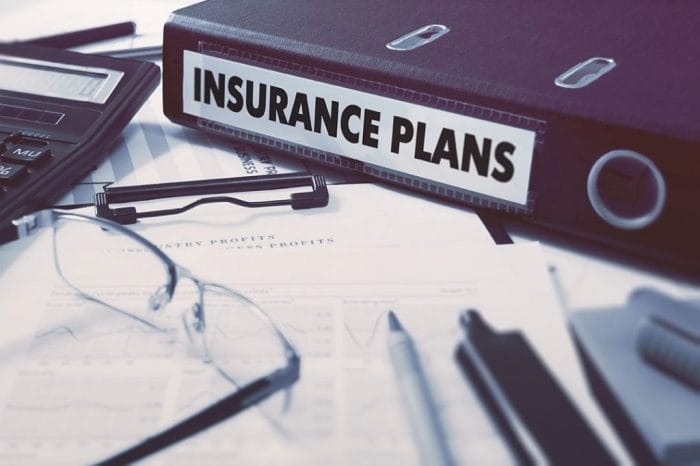
Establishing and maintaining positive relationships with hotel insurers is crucial for hotels to secure favorable insurance coverage, terms, and rates. By fostering open communication and transparency, hotels can build trust with insurers, leading to mutually beneficial outcomes.
Transparency and open communication are key to building strong relationships with insurers. Hotels should provide accurate and complete information about their operations, risks, and claims history. This enables insurers to assess the hotel’s risk profile accurately and offer tailored coverage at competitive rates.
Examples of Benefits of Building Strong Relationships with Insurers
- Access to specialized knowledge and expertise: Insurers often have extensive knowledge of the hotel industry and can provide valuable insights into risk management and insurance coverage. This expertise can help hotels identify and mitigate potential risks, leading to lower premiums and reduced claims.
- Customized insurance solutions: By understanding the unique needs and challenges of each hotel, insurers can tailor insurance policies that provide comprehensive coverage at competitive rates. This customization ensures that hotels are adequately protected against relevant risks without paying for unnecessary coverage.
- Prompt claims handling: Strong relationships with insurers can facilitate faster and more efficient claims processing. Insurers are more likely to prioritize claims from hotels they have a positive relationship with, resulting in quicker settlements and reduced financial disruptions for the hotel.
Regular Policy Reviews and Updates
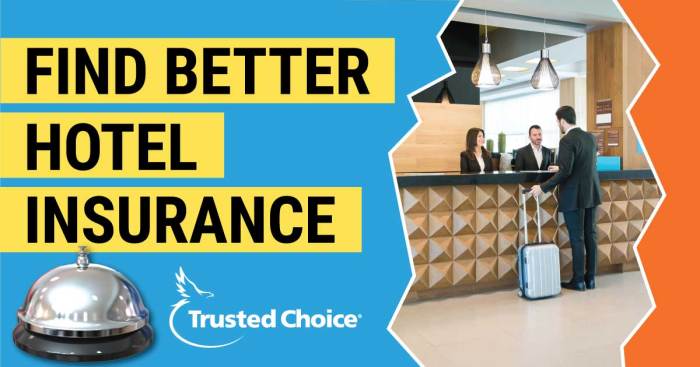
Regular reviews and updates of hotel insurance policies are crucial to ensure coverage remains adequate, relevant, and cost-effective. This proactive approach mitigates risks, optimizes protection, and keeps premiums in check.
Step-by-Step Guide for Conducting an Insurance Policy Review
1. Assemble a Review Team
Gather a cross-functional team comprising key hotel personnel, including management, finance, legal, and risk management experts.
2. Review Policy Terms and Conditions
Scrutinize each policy thoroughly, examining coverage limits, exclusions, deductibles, and endorsements. Assess if they align with current hotel operations, risks, and regulatory requirements.
3. Evaluate Claims History
Analyze past claims data to identify trends, patterns, and areas of potential vulnerability. This helps pinpoint coverage gaps and fine-tune risk management strategies.
4. Assess Changes in Hotel Operations
Consider any recent or upcoming changes in hotel facilities, services, amenities, or business practices. Ensure policies reflect these modifications to avoid coverage gaps.
5. Review Applicable Laws and Regulations
Stay updated on evolving legal and regulatory requirements affecting hotel operations. Adjust policies accordingly to comply with new mandates and avoid potential liabilities.
6. Consult with Insurance Broker or Agent
Collaborate with your insurance broker or agent to gain expert insights into market trends, emerging risks, and coverage options. Their knowledge can help optimize your insurance program.
Evaluating Insurance Costs and Coverage
Navigating hotel insurance costs and coverage can be challenging. Evaluating different methods, negotiating favorable premiums, and understanding the cost-coverage balance are key to optimizing insurance policies.
Comparing Evaluation Methods
Insurance costs and coverage can be evaluated using several methods:
- Loss Ratio: Compares incurred losses to earned premiums, providing insights into an insurer’s profitability and potential for future rate adjustments.
- Expense Ratio: Assesses the proportion of premiums used for expenses, highlighting an insurer’s efficiency in managing administrative costs.
- Combined Ratio: Combines loss and expense ratios, offering a comprehensive view of an insurer’s overall profitability.
- Claims History: Reviewing a hotel’s claims history can reveal patterns and trends, enabling proactive risk management strategies.
- Industry Benchmarks: Comparing insurance costs and coverage with industry averages can identify potential discrepancies or areas for improvement.
Negotiating Favorable Premiums
Negotiating favorable insurance premiums requires preparation and strategy:
- Shop Around: Obtaining quotes from multiple insurers fosters competition and potentially secures better terms.
- Provide Accurate Information: Disclose all relevant details accurately to ensure accurate premium calculations.
- Implement Risk Management Measures: Demonstrating proactive risk management efforts can signal lower risk and encourage insurers to offer competitive premiums.
- Consider Higher Deductibles: Opting for higher deductibles can reduce premiums, but the trade-off of increased out-of-pocket expenses must be carefully evaluated.
- Build Strong Relationships: Fostering positive relationships with insurers can facilitate open communication and potentially lead to more favorable terms.
Balancing Cost and Coverage
Selecting an insurance policy involves balancing cost and coverage:
- Prioritize Coverage: Ensure the policy provides adequate coverage for potential risks, even if it means paying slightly higher premiums.
- Avoid Overinsurance: Purchasing excessive coverage can lead to wasted premiums without significantly enhancing protection.
- Consider Long-Term Costs: Evaluate not only immediate premiums but also potential future costs, including claims handling fees and potential rate increases.
By carefully evaluating insurance costs and coverage, negotiating favorable premiums, and considering the cost-coverage balance, hotels can optimize their insurance policies, ensuring adequate protection without straining their financial resources.
Benchmarking and Industry Standards
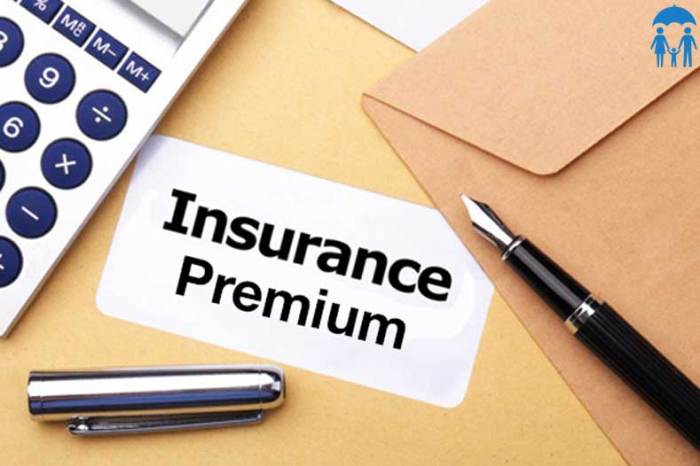
Understanding industry standards and benchmarks for hotel insurance premiums is crucial for effective cost management. By comparing your insurance costs with industry averages, you can assess whether you’re paying a fair rate and identify potential areas for savings.
Resources for Industry-Specific Benchmarks
Numerous resources provide industry-specific insurance benchmarks for hotels:
- Insurance Brokers and Agents: Consult with your insurance broker or agent to access industry-specific data and insights. They can provide tailored recommendations based on your hotel’s unique characteristics.
- Insurance Industry Associations: Membership in industry associations like the American Hotel & Lodging Association (AHLA) or the International Hotel & Restaurant Association (IHRA) offers access to valuable insurance-related information, including benchmarking data.
- Online Databases and Publications: Several online databases and publications compile and publish industry-specific insurance benchmarks. These resources often provide historical data, allowing you to track trends and make informed decisions.
Benefits of Participating in Industry Associations
Participating in industry associations offers numerous benefits beyond access to insurance-related insights:
- Networking Opportunities: Industry associations provide platforms for networking with peers, sharing best practices, and staying updated on the latest industry trends.
- Educational Resources: Associations often offer educational programs, seminars, and workshops on various topics, including insurance and risk management.
- Advocacy and Representation: Industry associations advocate for the interests of their members and represent them in discussions with policymakers and regulators.
Continuous Improvement and Learning
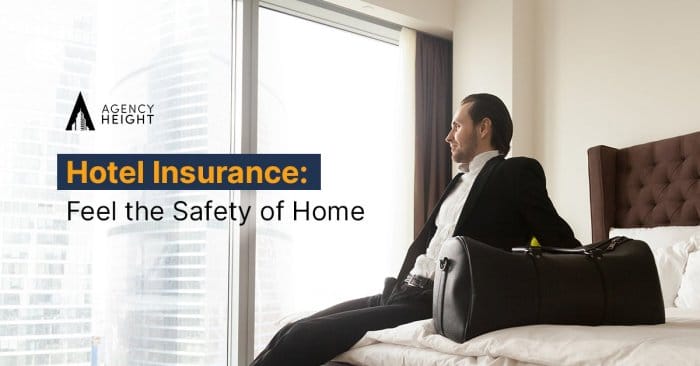
Continuously updating your knowledge about the evolving hotel insurance landscape is essential for maintaining effective coverage and minimizing premiums. Stay informed about industry trends, best practices, and regulatory changes to make informed decisions regarding your insurance program.
To stay updated, consider the following resources:
1. Industry Publications and Websites
- Subscribe to industry magazines, newsletters, and online resources that provide insights into the latest developments in hotel insurance.
- Visit websites of reputable insurance companies, brokers, and industry associations for informative articles, white papers, and webinars.
2. Attend Industry Conferences and Seminars
- Participate in industry conferences, seminars, and workshops to learn from experts, network with peers, and stay abreast of emerging trends.
- Engage in discussions, panel sessions, and breakout groups to gain diverse perspectives and insights.
3. Engage with Insurance Professionals
- Build relationships with your insurance broker, agent, and underwriters. They can provide valuable insights into market conditions, coverage options, and risk management strategies.
- Seek their advice on how to improve your insurance program and reduce premiums.
4. Monitor Claims History and Data
- Regularly review your claims history to identify patterns, trends, and areas for improvement.
- Use data analysis to understand the root causes of claims and implement preventive measures to minimize future occurrences.
5. Continuous Learning and Training
- Encourage your staff to participate in training programs and workshops related to hotel insurance, risk management, and safety procedures.
- Provide opportunities for employees to stay updated on industry best practices and regulatory changes.
Last Point
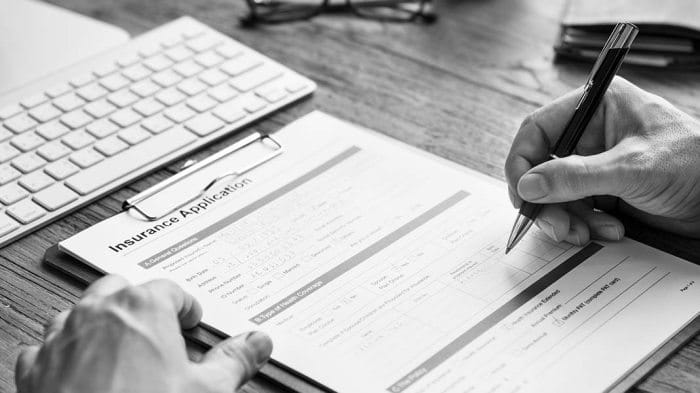
By following these expert recommendations, hotels can effectively manage their insurance costs, mitigate risks, and protect their assets. Embracing a proactive approach to insurance management not only reduces premiums but also enhances the overall safety, security, and reputation of the hotel, ultimately contributing to its long-term success and sustainability.
FAQ
How can hotels identify and mitigate potential risks?
Hotels can identify risks through regular inspections, staff training, and risk assessments. Mitigation strategies include implementing safety protocols, maintaining proper records, and conducting regular maintenance.
What are effective strategies for preventing insurance claims in hotels?
Preventing claims involves proactive measures such as regular maintenance, staff training, and guest education. Additionally, having clear policies and procedures in place helps minimize the likelihood of incidents.
Why is maintaining accurate hotel records crucial for insurance purposes?
Accurate records aid in claims processing and demonstrate the hotel’s commitment to safety and compliance. They also facilitate audits and provide valuable data for risk management and decision-making.
How can hotels build strong relationships with insurance providers?
Building positive relationships involves open communication, transparency, and prompt claim handling. Regular meetings, clear documentation, and demonstrating a commitment to risk management can foster trust and collaboration.



